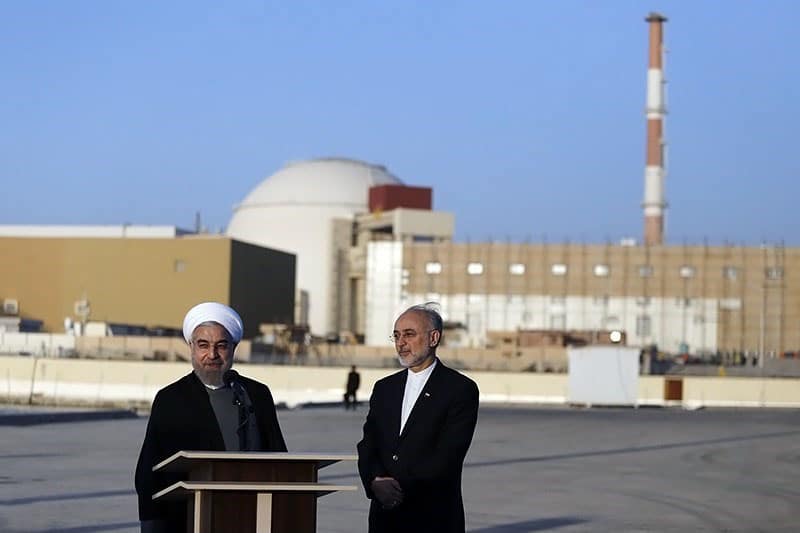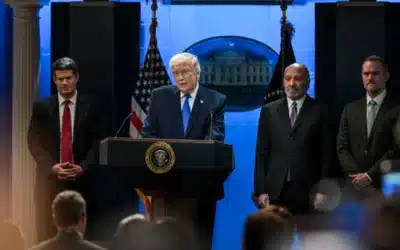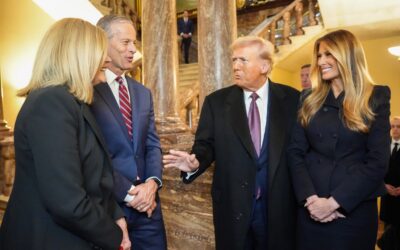Tehran has begun enriching uranium with one of three new advanced IR-6 centrifuges installed at the underground Natanz facility, according to a new report issued to member states by the UN nuclear watchdog, the International Atomic Energy Agency (IAEA). The Natanz plant is Iran’s main center for enriching uranium and building centrifuges for its civilian nuclear energy program. Over the last several years, it has been the target of numerous Israeli and American sabotage attacks which have caused explosions. On Monday, former Mossad chief Yossi Cohen boasted Israel carried out “countless operations” against Iran’s nuclear program.
According to the confidential IAEA report seen by Reuters, the Iranians are using the cascade, or cluster, which comprises up to 174 machines, to enrich uranium to five percent purity. This is far below the 90% level required for weapons grade uranium which Iran has never attempted to produce. The other two IR-6 cascades are not enriching uranium. One is undergoing a process called passivation, which paves the way for enrichment, and the other has not yet been fed any nuclear material at all.
In June, the New York Times reported American and Israeli intelligence were monitoring Iran’s construction of a tunnel network at Natanz. Although the Israelis attempted to spin this into Iran building a bomb, the article cited American officials saying it was merely an attempt to avoid further Israeli attacks.
This new report comes amid recent progress in indirect Iran nuclear deal negotiations between Washington and Tehran, which have been brokered by European Union diplomats. The talks seek to lift sanctions on Iran and return the United States to compliance with the Joint Comprehensive Plan of Action (JCPOA).
Beginning a year after the Donald Trump administration illegally withdrew from the deal, Iran expanded its nuclear program by building advanced centrifuges and enriching some uranium tetrafluoride to 20%, for use at the Tehran Medical Research Reactor, and some uranium hexafluoride to 60%. Iran has said it will not enrich beyond 60% purity even if the talks fail.
This is a non-violent response to Washington’s economic war and myriad Israeli attacks, including targeted killings. Though the JCPOA limits Iran’s enrichment to 3.67%, Tehran’s responses are permitted under the deal in Articles 26 and 36. These sections allow Iran to walk back its commitments if the other parties have done so and the US, as well as the Europeans, have left their obligations unfulfilled. Iran has never left the JCPOA.
Iran’s moves also build leverage for negotiations. Tehran has actually sought some contingencies regarding these advanced centrifuges that need to be shut down in order for Tehran to return to compliance with the deal. The Iranians put forward the idea that, in the event that the Americans pull out again and the deal goes south, they could leave some advanced centrifuges in a such a state that they could be brought back online within a year. This arrangement would act as an insurance policy, though it does not appear the concept has been accepted.
Josep Borrell, the EU foreign policy chief, issued a “final” proposal last month which saw Iran issue a response that Borrell deemed “reasonable.” The Europeans are keen on seeing the Joe Biden administration follow through on its ostensible goal of returning to the deal, as the continent has seen soaring energy prices as a result of the anti-Russia, Washington-led sanctions blitz.
Last week, a US official told Reuters that Tehran had dropped its demand to have its elite military unit, the Revolutionary Guard Corps (IRGC), removed from the State Department’s Foreign Terrorist Organization (FTO) blacklist. This concession, first reported in June, was substantial as the designation is a sweeping sanction on all current and former members of the unit, including those who were conscripted to serve in non-combat roles.
The American official also said Tehran made another significant concession by no longer demanding that the IAEA end its probe into unprocessed uranium particles discovered at “undeclared sites” years ago. The issue is controversial because it has long been used to thwart diplomatic progress, Iran maintains it already provided full documentation to the agency to satisfy its inquiry. But Washington, the E3, and the increasingly politicized IAEA chief Rafael Grossi claim the Iranians have been uncooperative.
“We think they have finally crossed the Rubicon… If we are closer today, it’s because Iran has moved. They conceded on issues that they have been holding onto from the beginning,” the US official said. However, speaking to a news conference on Monday, Iranian President Ebrahim Raisi said in order for the deal to succeed, the probe must end. Though, Raisi may be playing domestic politics. US sanctions have devastated Iran’s economy, half of its population lives below the poverty line and inflation is estimated to be somewhere between 40-50%. Either Raisi is trying to appear less conciliatory in the eyes of his supporters or the US official misstated Iran’s position. Tehran is expected to soon reply to the Americans’ response the EU received regarding Borrell’s proposal.
Concurrently, Tel Aviv has launched a “diplomatic fight” against the potential deal. The Israelis are dispatching high level military and intelligence officials to Washington, insisting the US abandon the talks all together, and demanding Washington “needs” to prepare a military option to extract Iranian concessions, at the threat of force, regarding its ballistic missile program as well as its independent foreign policy. Hawkish Congressional Democrats likewise have been calling for a “longer and stronger” deal. These are non-starters and red lines for the Iranians, particularly since Biden, along with the Israelis, have been attempting to build an anti-Iran, NATO style alliance, led by the US with Israel and Washington’s Gulf dictatorship satellites.
Earlier this year, the Israelis carried out several drone strikes inside Iran as well as an unprecedented assassination campaign against IRGC members and aerospace industry workers. Last week, in what the Pentagon described as a message to Tehran, the Americans bombed Syria, several times over three days. Roughly a third of Syria, Iran’s close ally, is illegally occupied by US forces. In the midst of these attacks, Israel bombed Syria as well. For years, Tel Aviv’s airstrikes in the country, many of which are coordinated with US Central Command, have been an almost weekly occurrence.
If Israel was truly concerned about Iran’s alleged pursuit of nuclear weapons, they would support the JCPOA which mandates the most comprehensive and stringent IAEA inspections regime ever implemented. At any rate, Iran has been a signatory of the Non-Proliferation Treaty (NPT) since 1970. Israel is not a signatory to the NPT because it has a secret nuclear arsenal with hundreds of weapons which makes America’s decades of massive aid to Tel Aviv illegal.

































